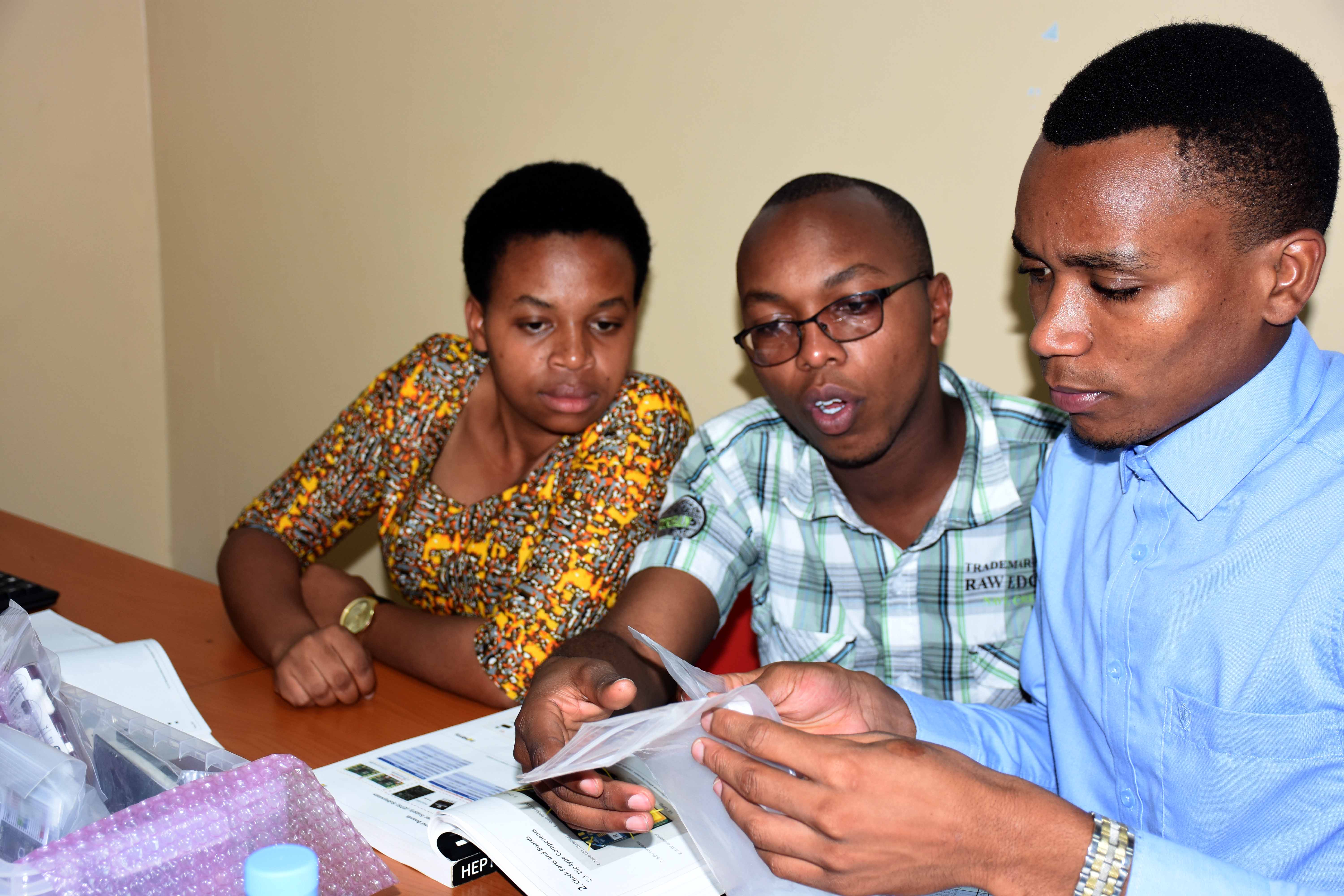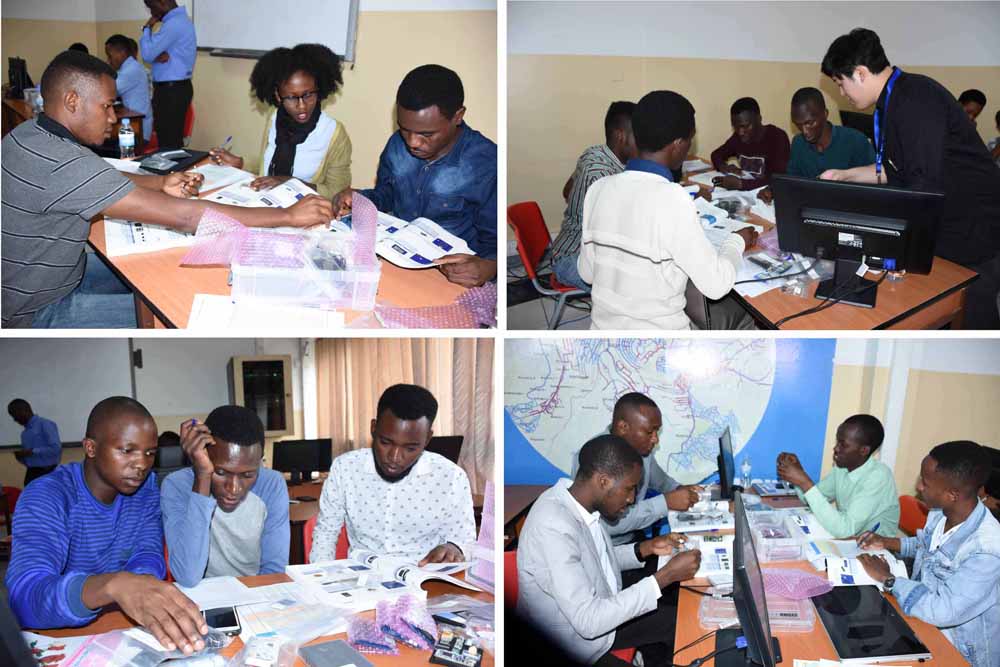
UR-Sweden Symposium showcases innovation-driven solutions to Rwanda’s pressing challenges
- 13-06-2025
- 399
A week long HEPTA-Sat training is organized at the University of Rwanda College of Science and Technology (UR-CST). The training has brought together 25 students selected through online test in the fields of Telecommunication, Computer and Mechanical Engineering. It is offered by a group of consultants from Nihon University in Japan through its existing collaboration with CST under UNISEC global.
The training was officiated by Dr Ignace Gatare, the UR-CST Principal who asked students to demonstrate high level of commitment and passion in order to be successful in the high-tech course. He also informed that the course is among the existing initiatives meant for human capacity development that can sustain the systems in place.

Opening remarks by Dr Gatare ; the Principal of UR-CST
“We can build systems, have satellite and space programmes but those programmes cannot be sustainable without people with capacity” He said
Dr Gatare added that the training was organized in the context of the bigger programme in line with the collaboration between the Government of Rwanda and Japan to build space and satellite technologies. He thus urged students, as pioneers of the Programme, to make use of the training so that they can become the future space engineers and satellite specialists.
Among students in the training include Alice Uwonkunda who is at final year in computer and software engineering. She admitted that the training is enabling her to have hands on skills that complement theories leant in class. According to her, knowing how satellites operate will be a hint to come up with appropriate programmes to make it function.

Uwonkunda (L) is among the students undertaking the training
“As software engineer, my role would be to develop programmes that connect all the devices that make a satellite,” Uwonkunda said.
The training will cover few theoretical concepts and mainly practical demonstration, design, programming, simulations and will show some cases related to small satellite, specifically HEPTA-Sat. In addition, the training is expected to develop some programming skills for command and data handling subsystem, function and architecture, basic knowledge of pico-satellite, subsystem assembly, integration and test to mention but a few.

Students during practical sessions